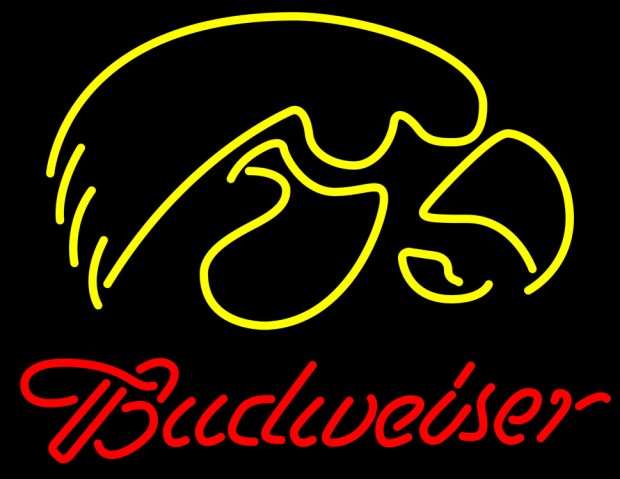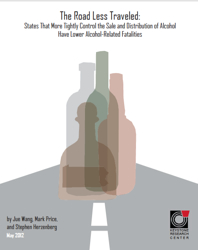Blog
Search
Blog
L.A. Public Safety Committee Asks for Input on Alcohol Ad Ban
 The L.A. Public Safety Committee recently requested input regarding the effectiveness of banning alcohol ads on public property, and how such restrictions could be put into place in the city. Such a ban would benefit the youth of L.A. and reduce alcohol-related public safety costs by reducing the amount of alcohol ads kids see, which would impact how much they drink and how early they start. By continuing to allow alcohol producers to place ads on public property, the city contributes to underage drinking and related harm. It's time to tell the L.A. City Council Public Safety Committee that restricting alcohol ads on public property makes a difference. Click here to take action.
The L.A. Public Safety Committee recently requested input regarding the effectiveness of banning alcohol ads on public property, and how such restrictions could be put into place in the city. Such a ban would benefit the youth of L.A. and reduce alcohol-related public safety costs by reducing the amount of alcohol ads kids see, which would impact how much they drink and how early they start. By continuing to allow alcohol producers to place ads on public property, the city contributes to underage drinking and related harm. It's time to tell the L.A. City Council Public Safety Committee that restricting alcohol ads on public property makes a difference. Click here to take action. University of Iowa Renews A-B InBev Sponsorship Deal
 When the University of Iowa (UI) issued its 2010 Alcohol Harm Reduction Plan to lower drinking rates and attract more alcohol abstainers and low-risk drinkers to the University, it should have been a sign of good intentions from the administration. Yet no plan to increase public health can succeed when one of the most powerful players in the institution is working against it. Enter UI Athletics and its three-year sponsorship agreement with Anheuser-Busch InBev, a deal that plasters beer advertising and logos in conjunction with UI logos throughout the UI campus and community. With the deal set to expire this year, given the scope and importance of the University’s high-profile efforts to reduce alcohol-related harm in the student population, it would have been a good time for the University to end the alcohol sponsorship.
When the University of Iowa (UI) issued its 2010 Alcohol Harm Reduction Plan to lower drinking rates and attract more alcohol abstainers and low-risk drinkers to the University, it should have been a sign of good intentions from the administration. Yet no plan to increase public health can succeed when one of the most powerful players in the institution is working against it. Enter UI Athletics and its three-year sponsorship agreement with Anheuser-Busch InBev, a deal that plasters beer advertising and logos in conjunction with UI logos throughout the UI campus and community. With the deal set to expire this year, given the scope and importance of the University’s high-profile efforts to reduce alcohol-related harm in the student population, it would have been a good time for the University to end the alcohol sponsorship. After all, aren't UI administrators eager to reduce the school's party image and create a safer, healthier campus? Evidently not. As it turns out, the UI athletic department recently signed a new agreement with A-B InBev, which gives the alcohol producer the right to place the UI Hawkeye logo on retail displays promoting Budweiser, such as posters and flags; promotional giveaways like cups, caps, and T-shirts; and radio advertisements and guest entertainment at home games for football, basketball, wrestling and at the UI Finkbine golf course.
The University of Iowa (UI) has a problem with alcohol consumption and related harm, and policymakers are not unaware of the alcohol-related problems its students face. The school noted in its 2010 plan that “there is substantive evidence that student at The University of Iowa drink more heavily leading to more negative consequences than other college students nationally.” In one study, 70% of students reported engaging in high-risk drinking in the past two weeks – compared with 33% of college students nationally. UI students are 1.5 to 2 times more likely to experience negative consequences from drinking, such as blackouts or arrests, than college students do nationally.
Clearly, UI is willing to undermine its stated intention of reducing alcohol consumption and related harm for its students for the sake of promoting Anheuser-Busch InBev products. Prioritizing sponsorship dollars over student health and safety sends a dismal message to other schools struggling with the same problems. It also sends a strong message to the alcohol industry: Come target UI students and local youth with beer promotions--we'll even help you do it.
For more information on the dangers of alcohol marketing and sponsorship, please see AJ's fact sheet on refusing industry funding and on alcohol marketing and youth.
Study: Fewer Alcohol-Related Traffic Deaths in Control States
Study: Fewer Alcohol-Related Traffic Deaths in States with Heavier Control
 A new Keystone Research Center report has found that states with more control of the sale and distribution of alcohol have fewer alcohol-related traffic fatalities than states with no such controls. The new analysis showed that with all else equal, a state with control characteristics like Pennsylvania has 58 fewer adult deaths per year from alcohol-related traffic accidents than it would if the state had no control over the distribution of alcohol. The findings reinforce the recent Community Preventive Services Task Force recommendations against the privatization of alcohol sales, and are particularly relevant in Pennsylvania given recent moves to privatize there. Check out Alcohol Justice fact sheets for more info on:
A new Keystone Research Center report has found that states with more control of the sale and distribution of alcohol have fewer alcohol-related traffic fatalities than states with no such controls. The new analysis showed that with all else equal, a state with control characteristics like Pennsylvania has 58 fewer adult deaths per year from alcohol-related traffic accidents than it would if the state had no control over the distribution of alcohol. The findings reinforce the recent Community Preventive Services Task Force recommendations against the privatization of alcohol sales, and are particularly relevant in Pennsylvania given recent moves to privatize there. Check out Alcohol Justice fact sheets for more info on: New Report: Alcopops Cheaper than Energy Drinks at 7-Eleven
 Alcohol Justice released a new report today showing that convenience store giant 7-Eleven cuts prices on supersized, youth-attractive alcopops, so they are cheaper than non-alcoholic energy drinks. While on average, alcopops were the same price per standard alcoholic drink as beer, supersized alcopops in 16- to 24-ounce cans were cheaper per standard drink than similarly sized beer. Some supersized alcopops such as Four Loko and Mike’s Harder Lemonade, entice youth with more alcohol for the price than even similar-sized malt liquor. “Alcopops are just too good of a deal for kids to pass up,” said Holley Shafer, research analyst at Alcohol Justice and co-author of the new report, “Alcopops Cheaper than Energy Drinks: 7-Eleven Gambles with Children’s Lives.” Alcohol Justice surveyed all 7-Eleven stores in northern California’s Marin County, an area plagued with excessive youth alcohol consumption.
Alcohol Justice released a new report today showing that convenience store giant 7-Eleven cuts prices on supersized, youth-attractive alcopops, so they are cheaper than non-alcoholic energy drinks. While on average, alcopops were the same price per standard alcoholic drink as beer, supersized alcopops in 16- to 24-ounce cans were cheaper per standard drink than similarly sized beer. Some supersized alcopops such as Four Loko and Mike’s Harder Lemonade, entice youth with more alcohol for the price than even similar-sized malt liquor. “Alcopops are just too good of a deal for kids to pass up,” said Holley Shafer, research analyst at Alcohol Justice and co-author of the new report, “Alcopops Cheaper than Energy Drinks: 7-Eleven Gambles with Children’s Lives.” Alcohol Justice surveyed all 7-Eleven stores in northern California’s Marin County, an area plagued with excessive youth alcohol consumption. More Articles ...
Help us hold Big Alcohol accountable for the harm its products cause.
| GET ACTION ALERTS AND eNEWS |
STAY CONNECTED    |
CONTACT US 24 Belvedere St. San Rafael, CA 94901 415-456-5692 |
SUPPORT US Terms of Service & Privacy Policy |
Copyright © 2026 Alcohol Justice. All Rights Reserved.
Joomla! is Free Software released under the GNU General Public License.


